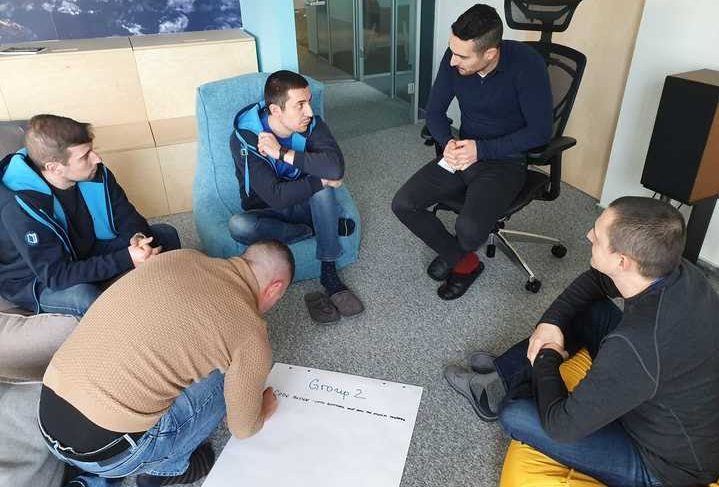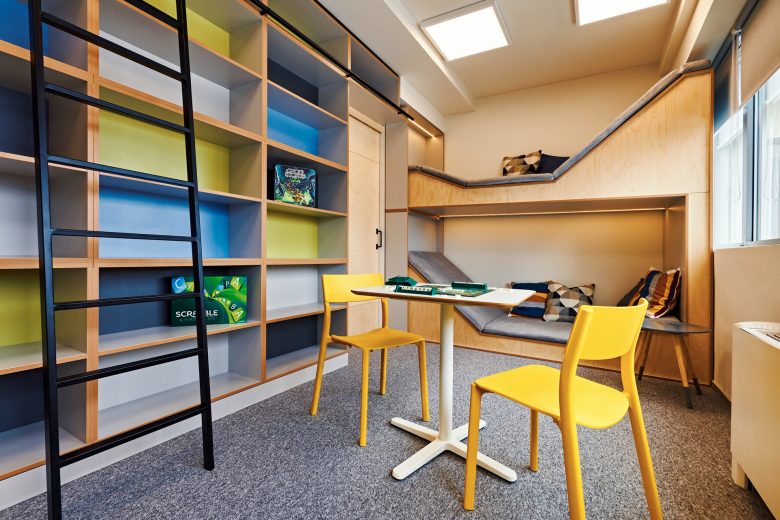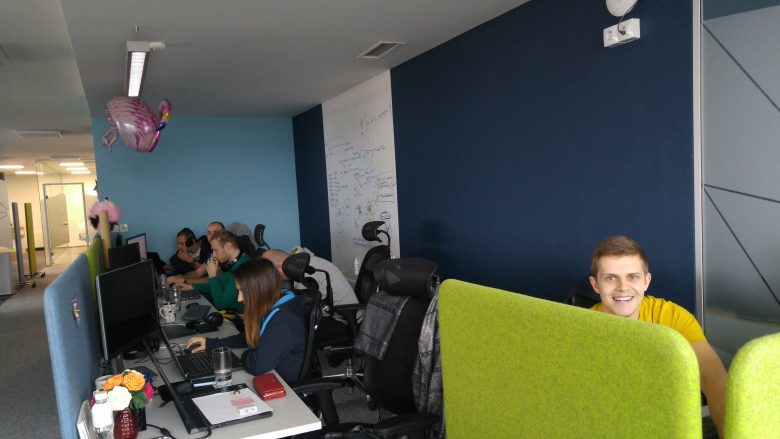Documaster’s Hygge Mentality: How Psychological Safety Helps The Team Deal With Challenges And Build Quality Software

About Documaster
In today’s knowledge-based economy, keeping information protected, reliable, and easy to understand and share has turned into a quintessential task for nearly every organization. Yet, with multiple repositories, legacy systems and constantly evolving scalability requirements, that’s not always so trivial as data can end up being all over the place – from hard to navigate shared drives to paper storage cabinets.
Here comes Documaster, a Norwegian document management tech startup with a Bulgarian CTO and core development team of over 50 people in Sofia. Since it was founded in 2014, the company has attracted over 200 public sector clients in Norway and Sweden as well as nearly €16m in funding and €3m in annual revenue. By carefully choosing robust technology and infrastructure stack for its products, Documaster has created a secure centralized environment for organizations to archive records from different sources, keeping files easy to find, retrieve, and reuse.
Feeling at home in the office: even before homes became offices
To foster this fast business growth and development of useful technology, Documaster has also put a lot of focus on the environment for its people and teams and adopted the hygge office mentality.
Wait, what is hygge? Well, it’s one of these hard to translate Danish and Norwegian words but Meik Wiking defines it as: “Hygge is about an atmosphere and an experience, rather than about things. A feeling that we are safe, that we are shielded from the world and allow ourselves to let our guard down.”
In Documaster the hygge mentality is all about creating a workplace that feels like home. A place where employees can find their ways to stay afloat stress and feel comfortable to discuss any problems that may come up. The perks that go with that culture are there – you can walk around the office in slippers, take a power nap in the relaxation room, or enjoy an afternoon breakfast or smoothie.
People remain the most important factor in the hygge equation, though. “When hiring for us it’s important to pick candidates who would respect their colleagues and be willing to help them in times of need. Furthermore, no matter if an employee has two or ten years of experience, all team members are considered equal and encouraged to share their opinions when decisions on different topics are made,” tells us Ina Kamenova, HR manager at Documaster.

Ivan Penev is a tech lead in a team of four engineers. They work on integrations into Documaster’s core product – in other words, they figure out how to properly transfer data from other systems into Documaster – in a way that suits customer needs but without forgetting efficiency and the least effort principle.
For him, hygge in Documaster is before anything else about the freedom to choose whatever workplace environment feels comfortable to you in different contexts.
“Normally, in the office, you can work from your desk, you can work from the kitchen and stay close to the fridge, from the bar (that goes with amazing views of the Vitosha mountains) or from the power nap room. Some days you may have to write more documentation – then, of course, you can opt to stay at home and avoid distractions. I like coming to the office early while there are no people, playing soft music for concentration, pouring myself a cup of green tea, and getting ready for the day before everyone comes. Nonetheless, in the current quarantine, I really miss all the in-person interaction with my colleagues,” shares Penev.

Why hygge works
Feeling at home, openly sharing your thoughts, knowing that you can count on your colleagues – all these things that create the hygge atmosphere in Documaster go back to one scientific term – psychological safety. Naturally, pretty much all of us would tend to avoid behaviors that could negatively impact how colleagues would perceive our competence and positive image, and as a result, the open and candid communication disappears.
On the contrary, the safer team members feel in each other’s company, the higher the probability that they will admit mistakes, collaborate and try to take on a leadership position. Business research has concluded that individuals on teams with higher psychological safety are less likely to leave the organization, are much more open to diverse ideas from teammates and bring twice the revenue the others do.
Numerous scientific studies have demonstrated that psychological safety enables moderate risk-taking, frank expression of opinions, creativity – the types of behaviors that often correlate with breakthrough innovation.
In an unsafe environment, the amygdala, the emotion-processing center in the human brain, sparks the fight-or-flight response, blocking perspective thinking, and analytical reasoning. Such reactions may be useful in life or death situations, however, they are usually counterproductive in the office. In cases when the workplace is perceived as challenging but not threatening, teams can develop a growth mindset. The levels of oxytocin, the social bonding hormone produced in the hypothalamus, increases so do the trust levels within the team.
Barbara Fredrickson, a researcher from the University of North Carolina also discovered that such state of mind facilitates a solution-finding perspective.

Do you love solving problems?
One of the questions that candidates would most likely encounter during a job interview at Documaster is ‘Why did you become a programmer?’.
It is not a coincidence that many of those who ultimately join the team were intrinsically motivated by the opportunity to discover and build solutions to challenging problems.
“Coming from a family of engineers, I have always been interested in computers and how they work – I still remember breaking my computer apart in the 7th grade. But I never thought I would do programming for a living. I actually graduated with a bachelor’s degree from the University of Architecture, Civil Engineering and Geodesy. My transition to the software world all started a bit like a joke. One day I came across an announcement for a programming academy, I applied, I really enjoyed the course and got the highest scores… and started as a junior Java developer soon after,” elaborates Penev.
He joined Documaster a couple of years later – at the time when there were seven people on the team in Bulgaria and pretty much nobody knew anything about the company. A friend of his tells him that the company is super cool and uses the latest technology, and that all decisions go through a vote in the entire team, so Ivan’s curiosity leads him to apply for a job there. Three interviews and a technical task later, Penev got a call from Dimitar Ouzounov, the co-founder and CTO of Documaster.
“My heart rate went up and I sweated. He asked me some questions about the task on the phone. I remember how I really wanted to say the correct answers and stuttered as I answered him. I had just rejected 2 job offers for the chance to work at Documaster and really wanted things to work out. When he finally told me that he wanted to offer me the job, I felt like the happiest person on earth,” remembers Penev.
Coming from a fintech company the new member of the Documaster team had never encountered records management before. And, it was his job to design a complete product that meets a Swiss standard for long-term database storage. Up until then, Ivan hadn’t written much front-end, so he had to study on the battlefield.
Fast forward a few years and he’s now dealing with the challenges of being in a leadership position.
“Over the years, have you managed to develop an algorithm for dealing with challenges and solving problems? ” we asked.
“It’s hard to say. This is one of my favorite parts of working at Documaster – the problems are not the same and each time the challenge is new and unique. Sometimes a complex problem can be solved in a very short time and sometimes a very long time. But I have one formula that tends to be useful most of the time:
- Identify the exact problem to be solved – who exactly is affected and how.
- Understand the full picture – talk to people, do some research.
- Check whether someone else hasn’t already solved the problem.
- Draw up a list of potential solutions.
- Test each of one them.”
From employee personal growth to impact on a global scale
There is no strict training schedule at Documaster – managers and employees just identify key personal and team needs together and look for the best way to satisfy them. You can change the team, try a new language, take a leadership position – there are plenty of opportunities for everyone to try to find their right spot in the organization. In addition, to ensure that good potential is developed, the company always tries to surround new hires with good role models.
“I’d say I have developed a broad set of skills since I started in Documaster – communication, technical and organizational. Perhaps the most useful one which I continue to develop to this date is the ability to work in a dynamic environment – for these over 3 years, the team grew more than 6 times (as it did in Norway, too). The range of products and services has expanded, and we have been able to consolidate the framework within which we offer them. But nevertheless, we continue to grow, to meet new challenges and short deadlines,” shares Penev about his skill development path at Documaster.
In today’s knowledge-based economy, having a secure environment to keep information safe and trustworthy is without doubt important. But for knowledge to grow, in the first place, it comes to having a secure environment where people feel safe, respected, and are able to openly communicate any challenges that arise.


























